Who We Are
Founded in 2008, the Military Interstate Children’s Compact Commission (MIC3) is the governing body of the Interstate Compact on Educational Opportunity for Military Children or ICEOMC. Commission members include the 50 states, District of Columbia, and six ex-officio representatives – which include the US Department of Defense (USDOD). In addition to the USDOD, the Compact supports uniformed members of the federal Departments of Commerce, Homeland and Health and Human Services. The collaborative’s mission: ease the educational transitions of school-aged, military and uniform-connected students attending public schools, to include Department of Defense Education Activity schools worldwide, and also promulgate and enforce the compact rules.
History
In 2006, the U.S. Department of Defense (USDoD) Office of Personnel and Readiness, in cooperation with the Council of State Governments (CSG) and National Center for Interstate Compacts, drafted the Compact to address some of the educational challenges transitioning children of military families encountered. The Defense State Liaison Office (DSLO) and CSG convened an advisory group comprised of federal, state, and local officials, national stakeholder organizations representing education groups; and military families to create the interstate agreement. In 2007, the advisory group finalized the model statute language, which the USDoD promoted as one of their key priorities for military families, and through the DSLO advocacy, was adopted by state legislatures within six years. Currently, the 50 states and the District of Columbia (D.C.) are members of the Compact, and the Department of Defense is ex-officio, non-voting member of the Commission.
What is an interstate compact?
A compact is an agreement among states, “a contract”, to abide by a specific set of administrative rules regarding a specific concern or issue – in this instance, the interstate transfer of military, school-aged youth attending public and Department of Defense schools worldwide. The administrative mechanism allows interstate collaboration to resolve complex policy challenges while retaining their state sovereignty. The interstate commission is a quasi-governmental, regulatory body, whose governance is led by member states, and administrated independent of federal intervention.
What does the Compact do?
While the Compact is not exhaustive in its coverage, it addresses key issues encountered by military families: eligibility, enrollment, placement, and graduation. In addition, the Compact provides for a detailed governance structure at both the state and national levels with built-in enforcement and compliance mechanisms. The goal of the Compact is to replace the widely varying policies affecting transitioning military students. The Compact leverages consistency: It uses a comprehensive approach that provides a consistent policy, for the areas specified in the compact, in every school district and member state.
Who is covered?
Children of active-duty members of the uniformed services, National Guard and Reserve on active-duty orders, commissioned officers of the National Oceanic and Atmospheric Administration (NOAA) and the United States Public Health Service (USPHS), and members or veterans who are medically discharged or retired for one year are eligible for assistance under the Compact. The Compact also covers students of members who perish on active duty for a period of one year following their death.
Policy Areas
Military family and dependents; Military dependent education; Interstate compacts
Resources
MIC3 2022 Annual Report
Guide for Parents, School Officials, and Public Administrators
Website: www.mic3.net
To request information on related policy issues or for more information, contact 859-244-8000 or email mic3info@csg.org.

